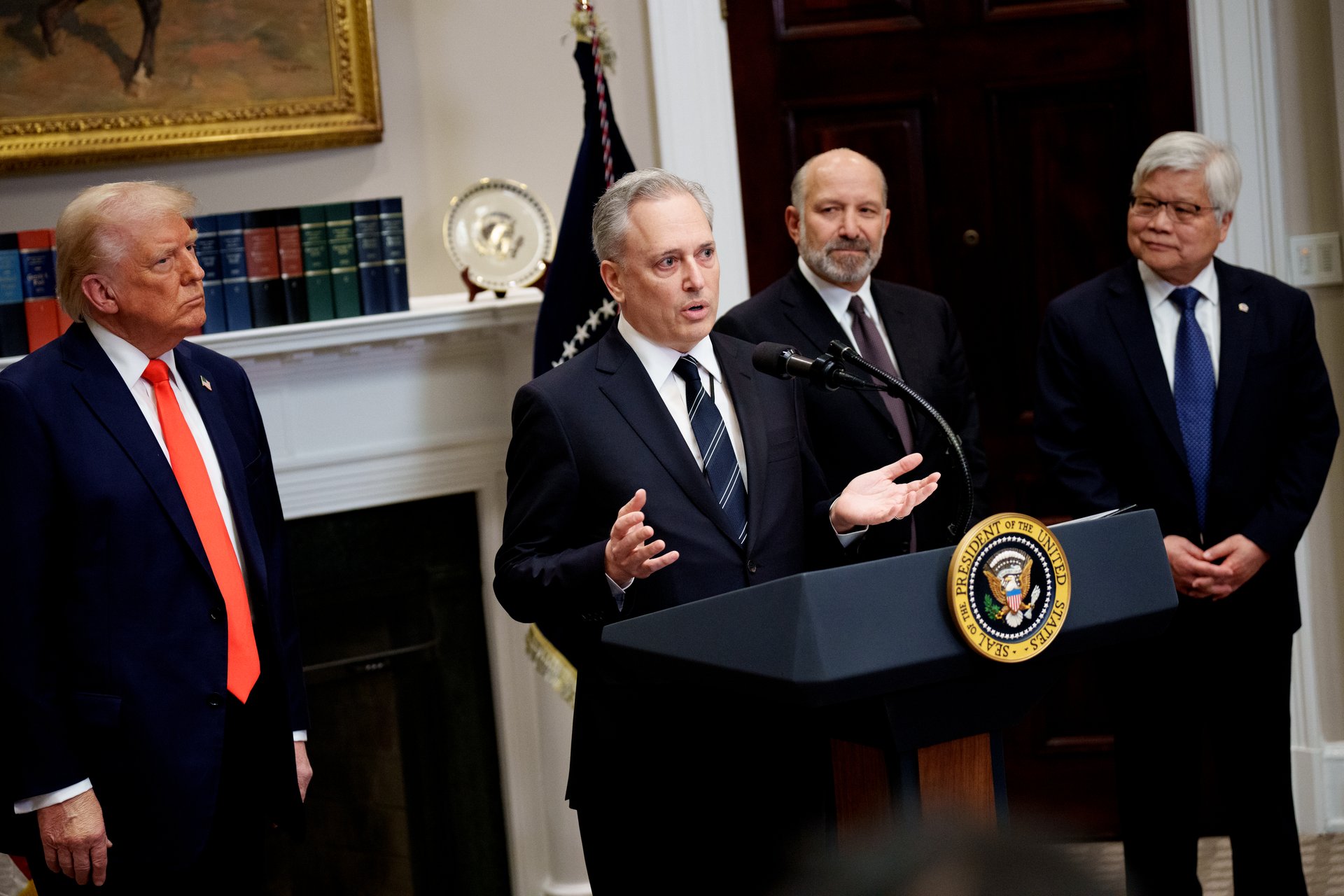Trump AI czar doesn't think the tech will lead to a 'giant wave of unemployment'
The Trump administration official thinks people will learn to work with AI — and trying to stem its rise is "like telling the tides to stop"

(Photo by Andrew Harnik/Getty Images)
One top Trump administration official thinks that the losers in the AI arms race may not be the ones replaced by machines — but the ones outpaced by colleagues who know how to use the machines better.
Suggested Reading
David Sacks, the tech investor tapped by President Donald Trump to shape AI policy, says Americans are focusing on the wrong threat. Sacks downplayed predictions of mass job loss in favor of a more optimistic — if demanding — future of work. Speaking publicly on Tuesday, Sacks said he doesn’t believe AI will trigger widespread unemployment. Instead, he framed the technology as a multiplier for human productivity, echoing historic shifts in labor.
Related Content
“You’re not going to lose your job to AI,” he said at a recent AWS Summit in Washington. “You’re going to lose your job to someone who knows how to do AI better.”
Sacks is betting AI won’t replace whole jobs but will instead automate routine pieces, letting workers get more done and add skills. That’s how past revolutions unfolded, he said: fewer farmers, not more long-term unemployed bodies.
“Personally, I don’t think [AI is] going to lead to a giant wave of unemployment,” he said, pushing back against what he called the “doomer cult” predicting mass job loss.
Sacks’ comments come at a time when prominent voices have warned about widespread disruption. Some studies foresee millions of displaced workers, and calls for universal basic income (UBI) are gaining traction. Anthropic CEO Dario Amodei said recently that AI could wipe out some white-collar jobs and drive unemployment to 20% — adding that tech leaders “have a duty to be honest about what’s coming.”
But Sacks seems to reject that narrative
“I think it’s actually very hard to replace a human job entirely,” he said. “I think it’s easier to replace pieces of it.” Sacks said AI agents will increasingly support workers, not supplant them. “They’re under the guidance of human workers who know how to use them to get more productive,” he said, describing a future where people use AI to extend what they can do.
“I could see AI driving our growth rate to something like 4 or 5%” he said. “I think you’re already seeing the beginning of an AI boom. I mean, I’m very optimistic that this will be a huge economic tailwind for us.”
The Trump administration official said resisting the technology is futile.
“It’s kind of like telling the tides to stop — it’s just not going to happen,” he said, urging policymakers and educators to embrace the shift rather than attempt to block it. He pointed to a recent example of a teacher who adapted her curriculum by allowing students to complete certain assignments using AI tools while reserving other tasks for traditional, tech-free evaluation.
That kind of hybrid approach, Sacks suggested, is the right way forward — an acknowledgment that AI is here to stay, and students need to be fluent in it without becoming dependent on it.
“I don’t think that the right thing to do here is to throw up a wall and just be so afraid of AI that we try to resist it,” he said. “We have to embrace that opportunity. We have to have our workers know how to use AI — be creative with it.”
